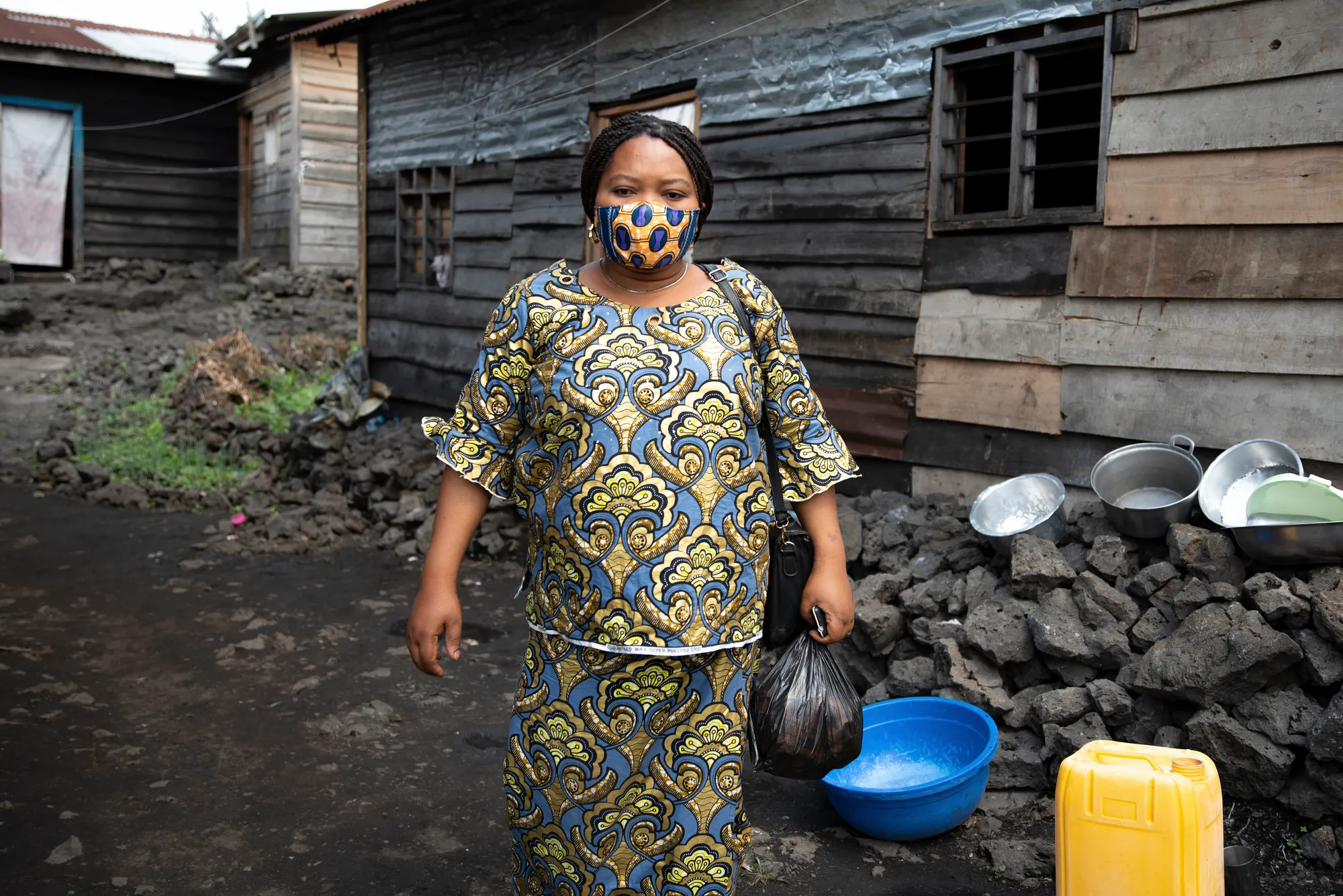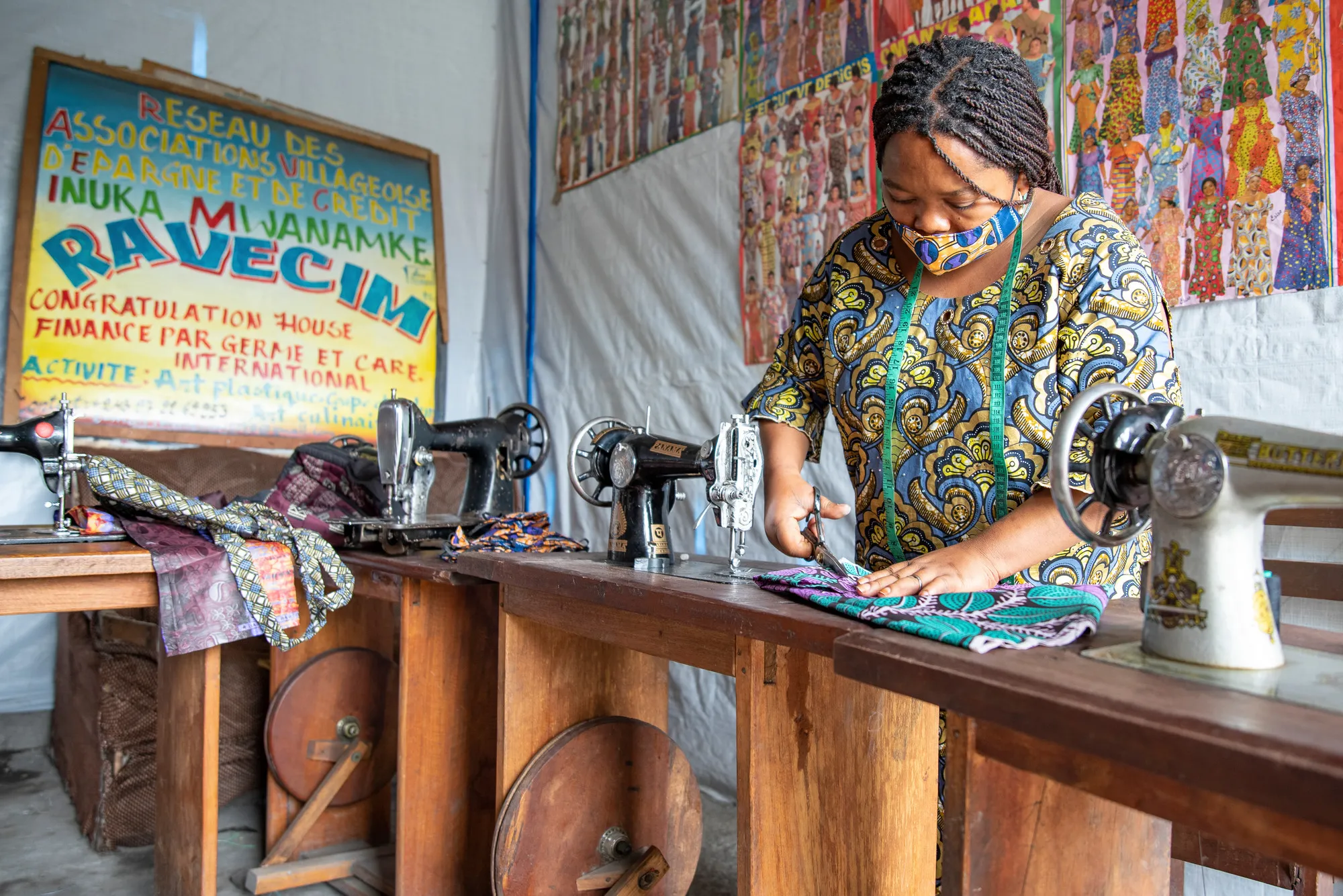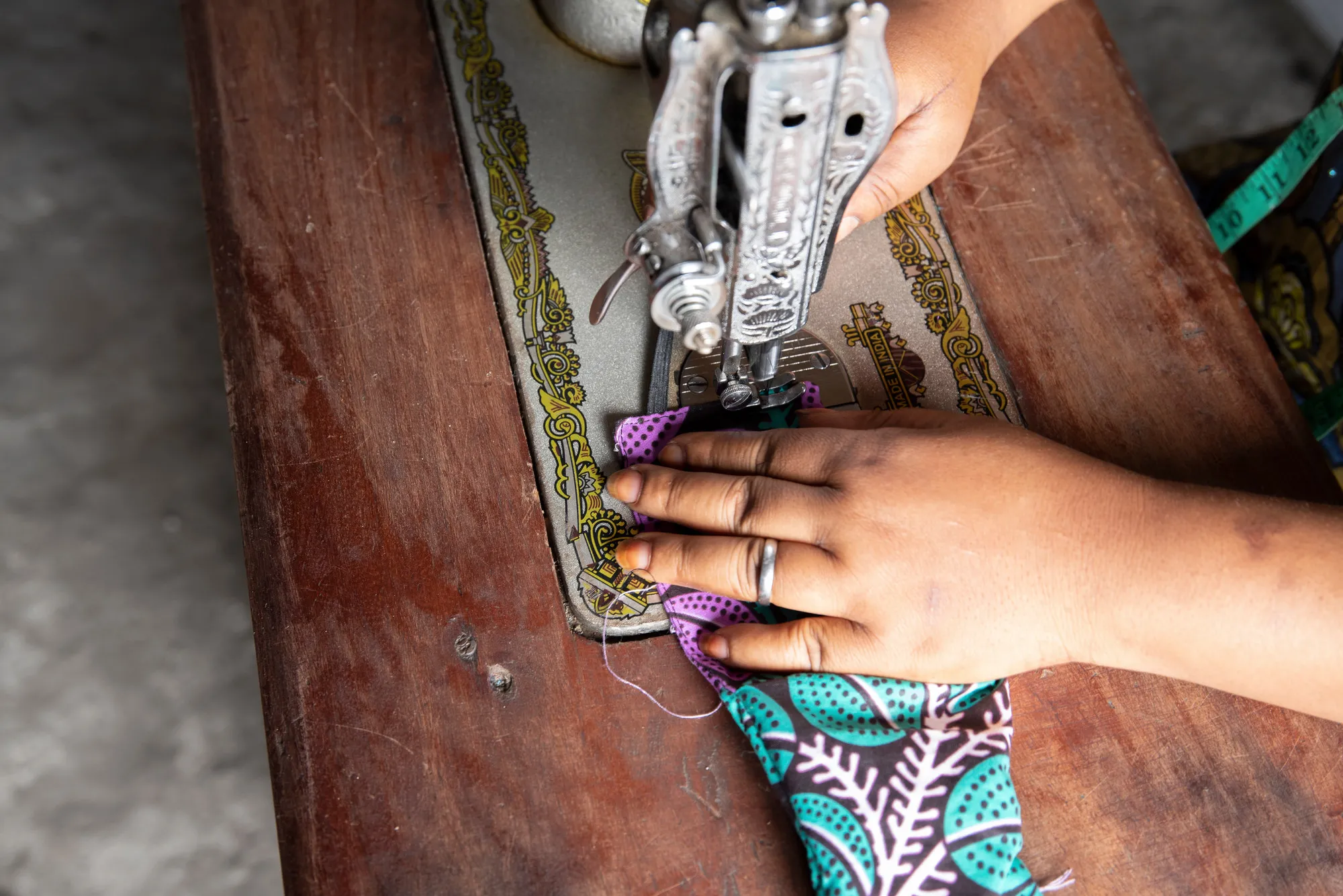Since 2020, the COVID-19 pandemic has claimed hundreds of thousands of lives, stretched health systems, and destroyed economies and livelihoods. The Democratic Republic of Congo was not spared and on April 6, 2020, cities across the country went into lockdown following border closures with surrounding nations.
This had a devastating effect on the country. According to the World Bank, an estimated 73% of people live on less than $1.90 a day in the DRC. The lockdown blocked many women working in informal businesses like food vendors, seamstresses, and grocers from accessing markets where they get their supplies. At the same time, health experts advised people to wear face masks to stem the spread of the disease. But in a country where many people have difficulty getting their next meal, procuring surgical masks was a challenge.
In Goma, seamstress Françoise Mbweki, who had seen a decline in her trade, reinvented her business to meet an essential community need. “I noted that the disposable [masks] are expensive. One surgical mask costs 500CF ($0.25), which you use, dispose of, then buy another one. I saw that my people were interested in a fabric mask because this one is reusable. With these face masks, one can use, wash, then reuse them. That’s why I saw fit to start making fabric masks and people love them so much,” Françoise says.



